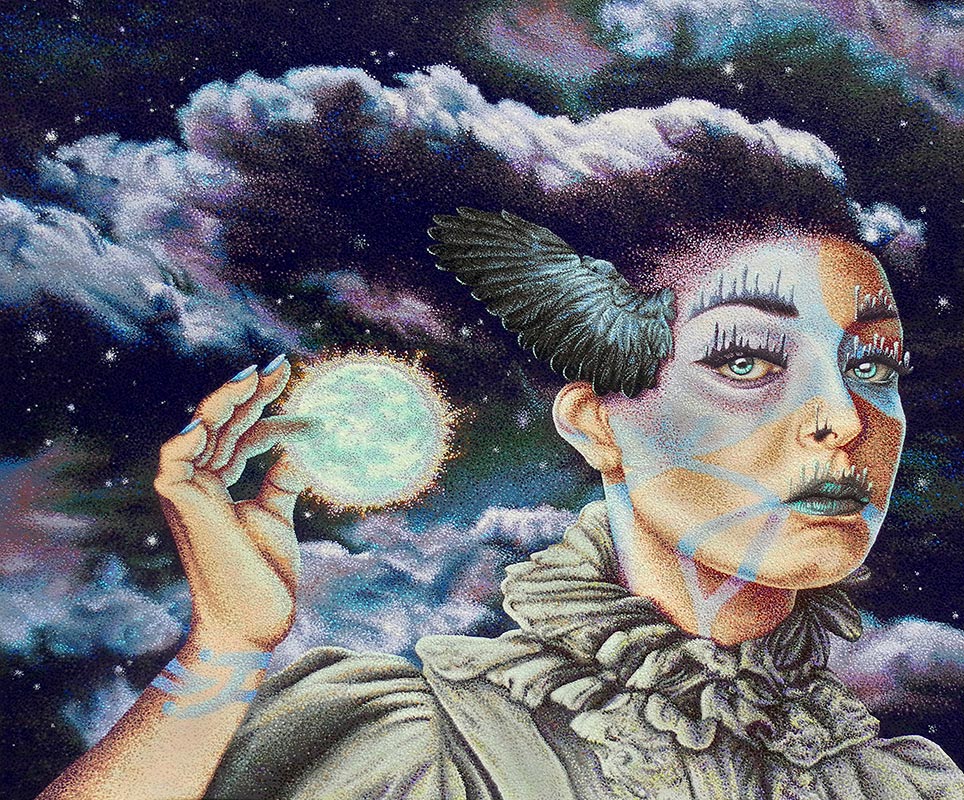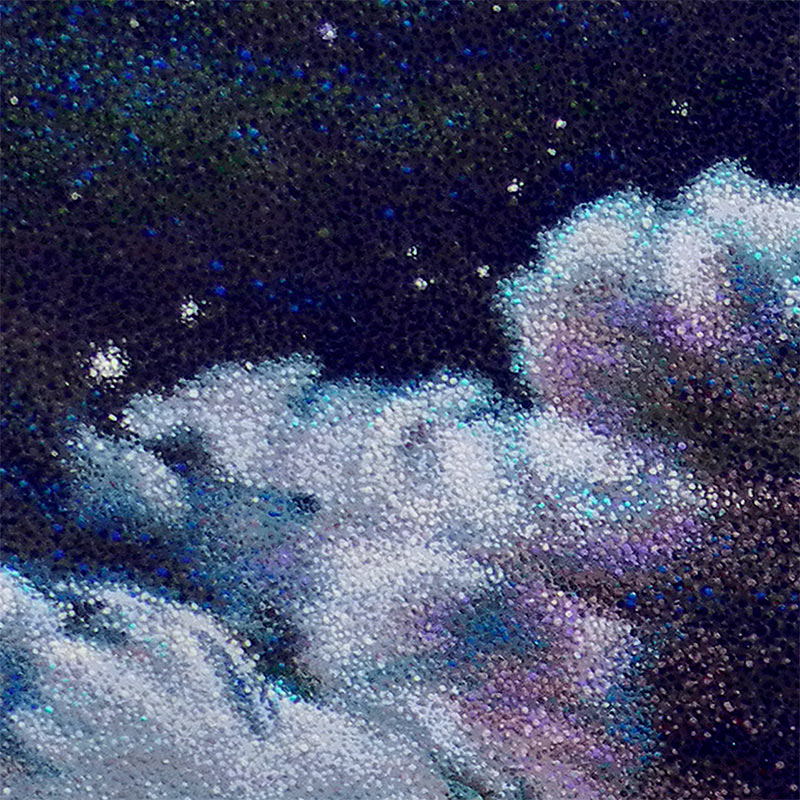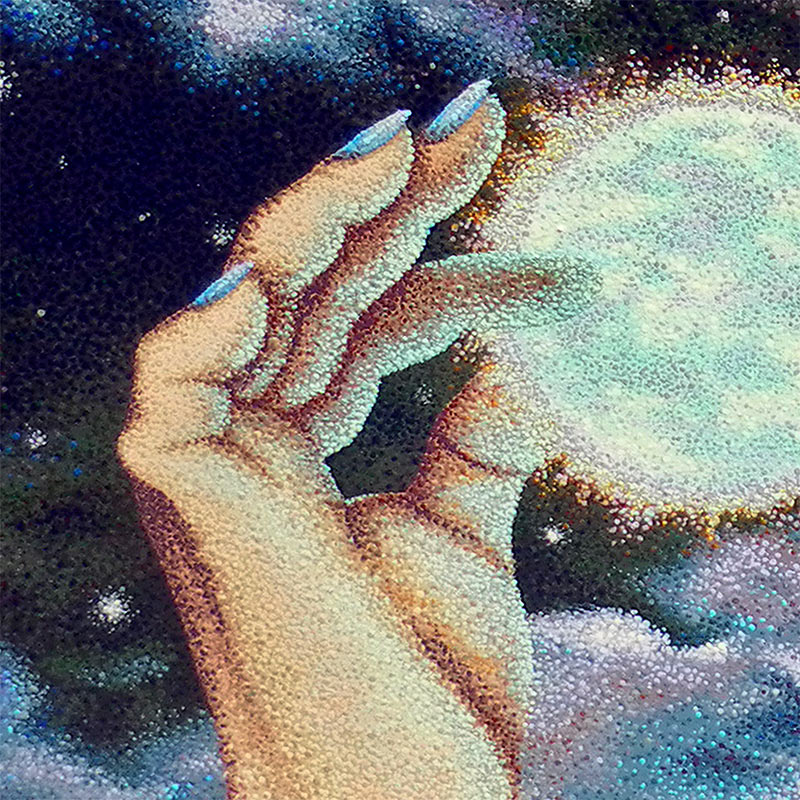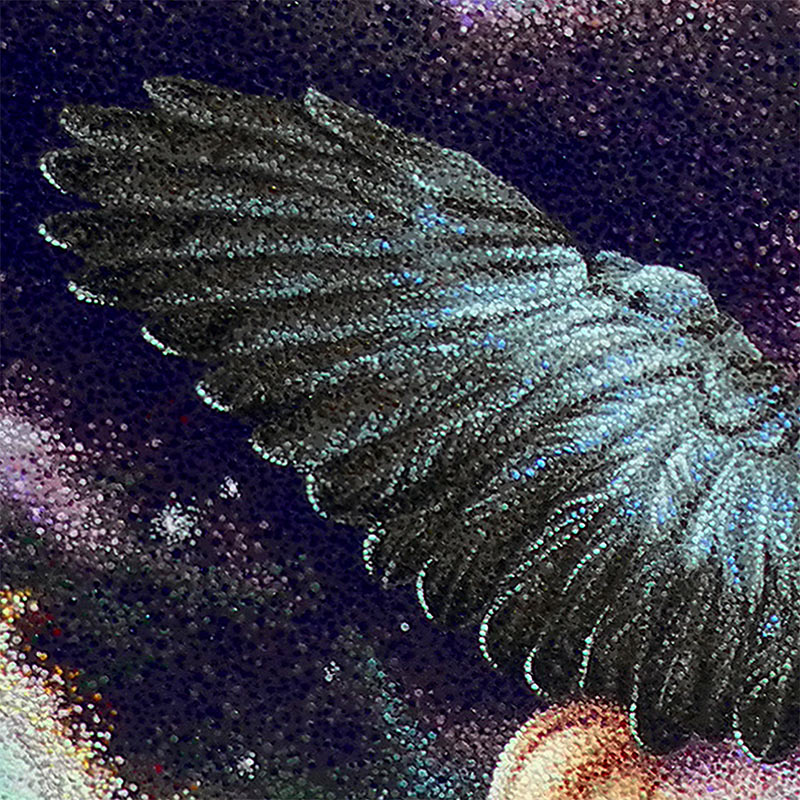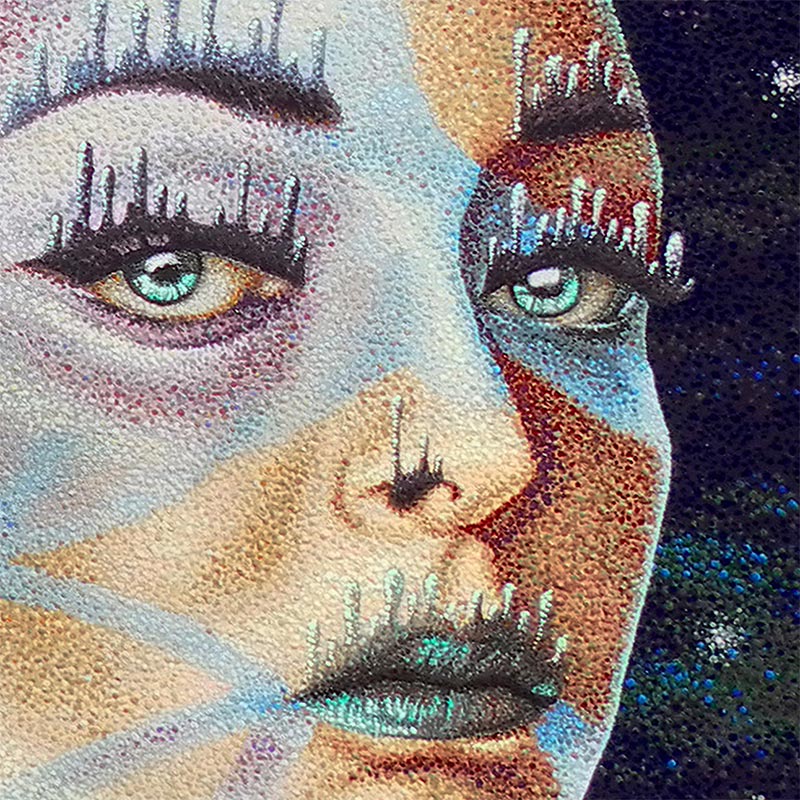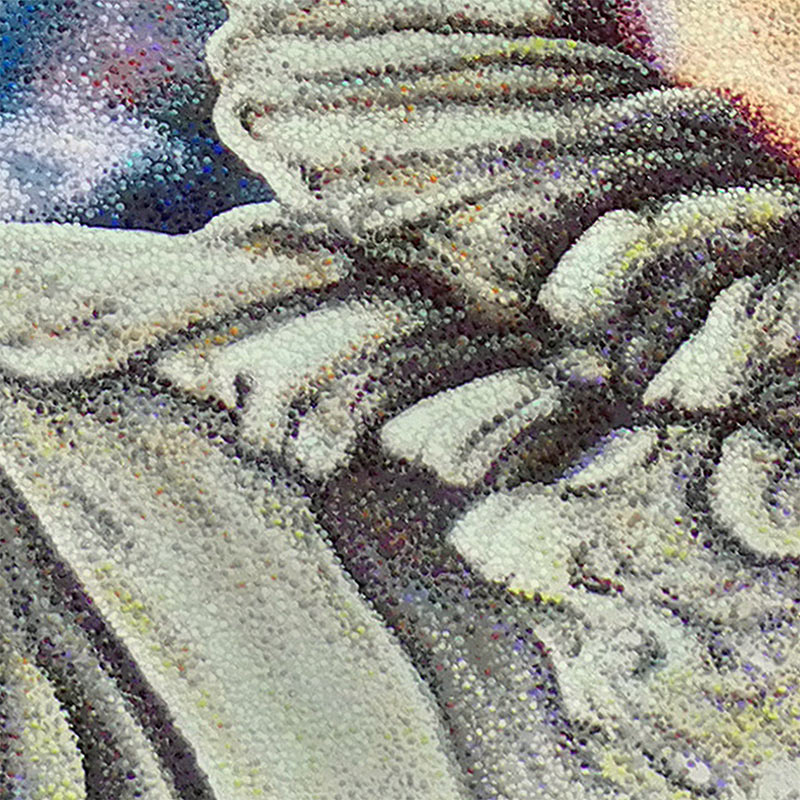Description
‘Divinely Contriving’ by JoKa
Artist: JoKa
Title: ‘Divinely Contriving’
Medium: Acrylic on Canvas
Dimensions: 18” x 16”
Framing: Unframed
Year of Creation: 2017
About the Artwork:
“This piece is part of the ‘Greater Beings’ theme which has been present in recent work on mine. Exemplified by over-sized representational figures that reside over us and govern our lives. Not religious necessarily, although some might read it that way with the celestial imagery, but instead overarching themes of impulse, dictation,and obligation. Things that we constantly feel are surrounding us, sometimes overbearingly and all encompassing.” – JoKa
About the Artist:
(Artist Bio)
Humor is the basis for the work of Philadelphia artist JoKa. Though his paintings aren’t explicitly funny, there is a skewed sense of reality that can give one the chuckles, if not cause just a little bit of discomfort. That’s because JoKa’s work doesn’t say anything outright; it consists of multiple layers of meaning, some absurd, some to be taken a little more seriously. That same balance exists in JoKa’s process. Though he doesn’t define the work by the way he works, he does pride himself on the technique he employs, namely hyperpointillism. JoKa likens his hours spent dotting the canvas using toothpicks to a kind of meditation, where the process takes over. However, the finished product is just as important, and its a high priority that the work feel well executed.
In his paintings, JoKa often draws from nostalgic imagery. He then skews and distorts, often times obscuring faces and presenting us with depersonalized, symbolic versions of a humanity which, though markedly different from our own, are also disarmingly familiar. Certainly, there is a point to be made, but JoKa does not content himself with prodding the observer in any specific direction, instead allowing the piece to slowly seep into the surreal corners of our unconscious, reminding us that a singularity of meaning isn’t always possible in the complex world we inhabit.

